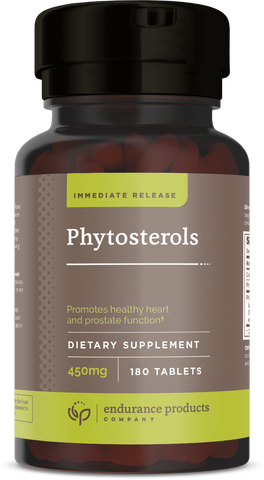Heart disease is the leading cause of death in this country, for both men and women. About 610,000 Americans die from heart disease each year—that’s one in every four deaths. High blood cholesterol increases the risk of heart disease. So it’s best to keep cholesterol levels in the normal range.
How to do that? Avoid these foods for starters.
Mashed Potatoes. What the what? I hear you thinking ... Potatoes can raise cholesterol? It’s not the potatoes that are problematic. It’s the other ingredients in the mash. Mashed potatoes are chock full of saturated fat in the form of butter, cream, whole milk, sour cream, and even sometimes cream cheese. So that healthy potato becomes not healthy and, well, hardly even a potato anymore.
If you’re longing for some spuds, have a potato topped with broccoli, cauliflower or spinach, and throw some salsa or low-fat plain yogurt on top. Make it a sweet potato (skip the butter and brown sugar!) and you’ll get more vitamin C in the deal. Vitamin C has powerful antioxidant properties, which helps combat oxidative stress and helps maintain healthy blood vessel function.
Apple pie. Sure apples are good for you. But the flaky crust—particularly the kind you buy in the frozen food section— is full of butter and shortening, making it one of the worst foods for your heart. Not only do you have the saturated fat of the butter, but shortening contains trans fats, or “partially hydrogenated oils,” which raises your LDL cholesterol (the “bad” kind) and lowers your HDL (aka the “good” kind). Keep in mind, if a pie crust has less than 0.5 grams of trans fats, the manufacturer is allowed to say there are 0 grams inside. And even small amounts of trans fat can add up to a significant intake.
If you must have pie (and let’s face it, sometimes you must), make your own without shortening or hydrogenated oil. Or skip the crust altogether and enjoy a few luscious bites of the apple filling (just a few!).
Fried chicken. Don’t be fooled by the “chicken” in the title. Sure, chicken’s a lean meat, but eating it with the skin, putting breading on it and frying it in vegetable oil makes it a whole different bird. When the chicken is fried, the oil breaks down, changing its fatty acid composition. So you’re not only getting all the fat when you eat fried chicken, you’re also getting an unhealthy dose of cell-damaging oxidants.
Put chicken back on your good side by grilling the breast, which is the leanest part of the bird. Or, if you’re hankering for a drumstick, broil it with olive oil and a dash of no-salt seasonings.
And something you should eat …
Here’s an interesting piece of information you might not know. (But should.) There’s a group of compounds naturally found in the cell walls of plants. They have a similar chemical structure to dietary cholesterol and, when humans consume them, these “cholesterol imposters” compete with real cholesterol for absorption in the gut. So they block the absorption of dietary cholesterol, helping to lower your blood levels. Once inside the walls of the intestine, the body doesn’t recognize these compounds, so they’re returned back into the digestive tract. Then both the real cholesterol and the imposters are excreted out of the body.
What are these compounds? They’re called phytosterols and they occur in foods such as nuts and seeds, though in relatively small quantities. Which explains why the typical diet contains as little as 170 mg/day of plant sterols.1 In fact, to get 1,000 mg/day through diet alone, you’d have to eat about 6 cups of almonds (about 5,700 calories), 4 cups of sunflower seeds (about 3,000 calories) or 8 tablespoons of sesame oil (about 1,000 calories!). Ouch.
That being said, it’s a good idea to get phytosterols into your system. In one extensive meta-analysis of 41 studies, researchers found that subjects who took phytosterols in the range of 700 to 1,100 mg were able to lower their LDL cholesterol by about 7%, on average.2
Luckily, there is a way to get them without breaking the calorie bank: Endurance Products Phytosterols 450 mg. One tablet taken just before breakfast, lunch, and dinner, provides a daily intake of 1,350 mg of cholesterol-blocking phytosterols. Plus, this daily dose is in the sweet spot that may help reduce YOUR risk of heart disease.
And these aren’t just any phytosterols. EP Phytosterols is formulated for immediate dissolution, thereby allowing the phytosterols to enter the digestive tract before cholesterol from a meal, where it is at the ready to block the absorption of dietary cholesterol.
Adding EP Phytosterols to your daily routine is one of the easiest ways to help maintain your blood cholesterol in the normal range.* After all, foods and supplements containing at least 400 mg per serving of plant sterols, eaten twice a day with meals for a daily total intake of at least 800 mg, as part of a diet low in saturated fat and cholesterol, may reduce the risk of heart disease. A serving of EP Phytosterols supplies 450 mg of phytosterols.
About Endurance Products Company
Endurance Products Company has been a trusted source of quality dietary supplements since 1978. Our sustained-release and extended-release tablets feature a unique vegetable wax matrix that releases nutrients in a slow, steady manner over a period of hours for optimal nutrient absorption and retention.
References
1. Katan MB, Grundy SM, Jones P, et al. Efficacy and safety of plant stanols and sterols in the management of blood cholesterol levels. Mayo Clin Proc. 2003;78: 965-978. PMID: 12911045.
2. Ostlund RE Jr. Phytosterols in human nutrition. Annu Rev Nutr. 2002;22:533-49. Review. PMID: 12055357.
*These statements have not been evaluated by the Food and Drug Administration. This product is not intended to diagnose, treat, cure or prevent any disease.

